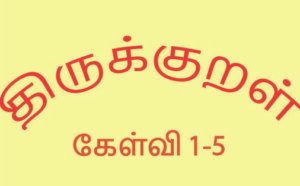Last week we introduced the five elements of learning to read. For the next five weeks, we will explore each of these elements in greater depth.
Phonemic Awareness
The first of these elements is Phonemic Awareness.
Think about your child’s language development. What do they do first? They begin by listening to your speech and learn to speak. Then they read, and finally write. Phonemic awareness relates to children’s ability to understand the sounds in spoken language—the sounds they hear when they listen and the sounds they use to form words and speak. At this stage, the emphasis is on children learning to play with the sounds of the spoken language.
Phonemic awareness skills are pre-reading skills. Children must first understand how to put together and take apart sounds in spoken words before learning to do the same with sounds in written words.
What can you do to foster phonemic awareness at home? You play with words and sounds. That sounds easy, but what exactly is playing with words and sounds?
Let me start by giving some examples for very young children-three and four-year-olds.
- Read rhymes and rhyming books to your child.
Do you ever wonder why we have young kids learn rhymes? It is a phonemic awareness activity. Rhyming teaches a child that substituting the beginning sound in words with other sounds can form new words. For instance, in the word bat, if you take away the first sound /b/ and substitute it with /c/, you get cat. Take away the /c/ and add /r/, and you get “rat.”
Select books that use language playfully, with silly rhymes and nonsense words. The emphasis here is on playing with sounds, so if you are rhyming in your mother tongue, that’s great! You see, it’s not about the language but the sounds themselves.
So, what can you do when you read rhyming books?
Find the rhyming pairs. Don’t read just the rhyme and leave it at that. Draw your child’s attention to the rhyming words. If you read Jack and Jill, say something like, “Oh listen! Jill and Hill end with the same last sounds ill. Jill and Hill rhyme!” Your child understands that these two words have the same last sound. As your child gets better at it, ask them to find the rhyming words independently. Maybe ask them, “Do you know any other word that rhymes with hill and Jill?” If your child doesn’t know, go ahead and help them with prompts. “Jill, Hill, mmm..” Your child fills it in quickly with ‘mill.’
Make this a little more challenging. You say a word and ask your child to come up with a rhyming word. For example, say ‘ball’ and see if your child can say hall, fall, tall…
Oh, by the way, did you know that Tulika Books has a marvelous book on Indian rhymes? It’s called Oluguti Toluguti: Indian Rhymes to Read and Recite. Do check it out.
- Another activity that teaches children to focus on sounds is alliterations.
Alliterations are sentences with words that begin with the same sound. Did you ever like “Betty bought a bit of butter, but the butter Betty bought..” Yes, those! Alliterations direct the child to the beginning sound in words. If you don’t know any, make up your own alliterations. They don’t have to be meaningful; they just have to have the same beginning sound. Often, adults restrict themselves to using phrases that make ‘sense.’ With little kids, ‘nonsense’ words catch their attention, keep them giggling, and draw them into the activity. When you make up alliterations, take care to avoid mixing different sounds of the same letter.
For instance, if you say, “Shanthi shakes shiny shoes,” here, the sound is /sh/ and not /s/ because we are focusing on the sound /sh/, and not the letter s.
Regional languages have lots of funny tongue twisters. Many of these are alliterations. Try some of those with your kids if you know alliterations in your mother tongue.
- Syllabication
It’s a fancy word, but it’s a fun activity for kids. Help your child recognize that words are made up of smaller parts or syllables. How? Clap the number of syllables in familiar names. For instance, Ram gets one clap, and Rani gets two. Clap out the syllables in favorite foods—dosa has two syllables, while paratha has three. You know what? All our lovely, long South Indian names are perfect for this activity. My last name was a favorite in my class.
- Now, we come to the more advanced phonemic awareness skills.
These are for four, five, turning six, and even seven-year-old kids. In these activities, we play games with sounds in words.
Beginning Sounds:
The first is to develop your child’s ability to identify the beginning sounds in words. Ask your child, “What is the first sound in ball? That’s right, /b/! What other words do you know that begin with the sound /b/?” Your child should be able to answer “bat, balloon, bear.” Remember, it is not about the letters. It’s all about the sounds! Now, you can’t keep asking your child this for ten minutes, can you? That’s why you must direct your child’s attention to the beginning sounds of words throughout the day.
Say it’s breakfast time, and you have idli and sambhar. Ask your child:
- “Would you like more mmmmilk? Do you want ssssssambar?
- “Let’s turn on the fffffan.”
Stretching the first sound of words makes them focus on that sound. Say you’re going grocery shopping. Play a guessing game when you prepare your grocery list.
- “We need a yellow fruit that begins with mmmm. That’s right, a mango! How about something white to drink? Yes, milk begins with mmm.”
- Flip that exercise: Ask your child,“The words monkey and milk begin with the same sound. What sound do they begin with? That’s right, /m/!”
- Play games that teach them to blend sounds. Blending is putting the individual sounds together to say the words. Think about making chutney. You put different ingredients, blend them together, and get chutney! That’s what we do here. Blending is putting the individual sounds together to make words. For instance, when we say /c//a//t/ = cat, we blend the three sounds to say one word.
Do you ever spell words to other adults so your little ones can’t follow what you say? For example, “Do you want to go the s-h-o-p?” In this activity, instead of letters, use the sounds in words. Ask your kids, “Do you want to play /b/ /a/ /l/?”or “Would you like to eat /i/ /d/ /l/ /i/?” What were the words here? Ball and idli!
- The third skill is segmenting. Segmenting is the opposite of blending. When you give a word, the child must identify the sounds in that word. What sounds do we hear in the word man? Your child should be able to say, “I hear /m/ /a/ /n/.”
Blending and segmenting are essential higher-level phonemic awareness skills. There are others like Deletion: Say the word bat. “If I take away the sound /b/, what is left? That’s right…at!” Identifying the sound at different locations in the word: What is the first sound in “dad?” What sound do you hear in the middle of the word cat? What is the last sound you hear in stop? Substitution: In the word cat, take away the sound /c/ and add the sound /m/. What word do you get?
Do you see how the child has to focus on the sounds we say? That’s really what we are aiming for!
Why are these skills important? Research tells us that children who struggle to blend sounds to read a word or segment the word into its individual sounds will have difficulty learning to read. The good news is that you can teach kids to blend and segment through games.
If you are unsure of which set of words to use, go online and look for word lists for phonemic awareness. I have no affiliation with this site, but I think the phoneme segmentation cheat sheet at Maketaketeach is an excellent resource for parents.
As you can see, these activities are short and simple. They take maybe five or ten minutes. I used to play these games with my youngest while driving. I didn’t take away her playtime or make her sit at the desk with paper and pencil. She came to us as a four-year-old who spoke no English. She was still able to play these games with us. So don’t stress about whether you’ll find the time to do these activities or if your child has enough English language skills to participate in these games. However you do it, make sure you have fun when you do these with your child.
Click here for the other podcasts on learning to read:
The Five Elements of Learning to Read
That Magical Skill Called Phonics!
How Does Fluency Help Comprehension?





